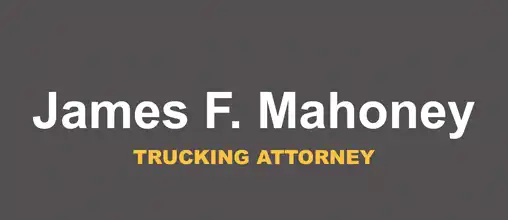Trucking attorney Jim Mahoney's law practice encompasses trucking and cargo loss litigation, claims management, compliance management, and operations consulting.
FMCSA Safety Ratings, DataQ Criticisms, Insurance Problems and More
Safety Ratings by the FMCSA are trending negatively because of the huge increase in off-site desk reviews.
The upgrade process to go from "Conditional" back to "Satisfactory" has resulted in a 90% denial. Instead, a carrier may receive, at best, “No rating.”
- FMCSA “policy” states “Satisfactory ratings can only be issued upon a comprehensive investigation,” generally a “full on-site audit.”
- Sometimes a single critical HOS violation is enough to get a Conditional rating.
- The two common critical violations are “form and manner” and “false reports of duty status” – often improper use of “personal conveyance,” the most misunderstood duty status.
- Complaints to the Agency say a revision of its safety rating methodology is needed because critical HOS violations are overly reliant on e-log enforcement, a battle that carriers are bound to lose.
- Efforts to reform CSA have been non-existent.
- Who loses? Carriers lose shipper and broker clients.
- The FMCSA uses the carrier’s rankings within the CSA program to target fleets for off-site safety audits.
- The small carriers receive the largest share of targeted audits, with little time to submit a laundry list of demanded documents.
- How to avoid the audit letter? Review, review, and review your CSA scores. Review crash accountability. Reward drivers with cash for clean roadside inspections.
DataQ: red tape, deaf ears
- It is a flawed system. Thousands of reasonable challenges are rejected with some challenges requiring multiple submissions over months.
- Many rejections are based on “word vs. word” Does the motor carrier’s word trump the officer who wrote the violation?
- There are no viable methods of appeal.
- Insurers believe CSA scores are infallible.
- Not using right “line” to record hours of service (HOS)
- Falsifying HOS
- Driving without a CDL
- Lack of maintenance records
- Driving before pre-employment test results
- Insufficient HOS supporting documents
- Failure to inspect vehicles annually
- Absence of drug and alcohol program
- Absence of random driver testing
- Failing to keep driver records
Your key: electronic records
- Driver qualification files, drug and alcohol testing programs, Hours of Service records, and vehicle maintenance files are where the most acute and critical violations are found.
- But be prepared to also upload proof of insurance, accident register, driver handbook with progressive discipline measures; also, oddly, I’ve seen requests for profit and loss statements, tax returns, personal and real property records.
- Standing alone, your HOS records without supporting documents can bring a downgraded safety rating; then combined with other violations, carriers face an “unsatisfactory” rating, heavy Notice of Claim fines, or orders to cease operations.
Weaponizing insurance costs
- Insurance premium costs per mile increased by 47% in 10 years.
- Crash frequency is not even the main culprit.
- “Small verdicts” are now in the $400K range; with litigation pressuring insurers.
- Litigious states produced payouts 50% larger than the national average.
- Insurers have left the market or allocated capacity to less risky sectors.
- Real world impact of insurance costs causes small fleets to cut corners on safety, decrease coverage levels to $1 million, leaving companies exposed to significant crashes.
- Excess coverage availability for large fleets is declining due to high risk, social inflation.
- Improvement in carrier safety performance YOY has no effect to lower premiums; we know insurers want 3 to 5 years of loss runs.
Understanding "nuclear verdicts"
- Plaintiff lawyers scare insurers to settle for 38% larger settlements than juries award, even considering counsel fees and expenses of trial.
- Looking ahead: trends in trucking insurance are expected to remain consistent; rate increases should continue: small fleets pay $0.125 per mile; very large fleets pay $0.037.
Important: retention of records
- Hire carefully (easier said than done) and document with PSP.
- Train drivers, even seasoned ones; train them continually.
- Hand audit HOS records and keep 6 months from hand in.
- Maintain vehicles; keep pre- and post-trip records of repair.
- Reward drivers with cash for “clean” DVERs.
- Contest obvious violation errors; be conversant and persistent with DataQ appeals.


